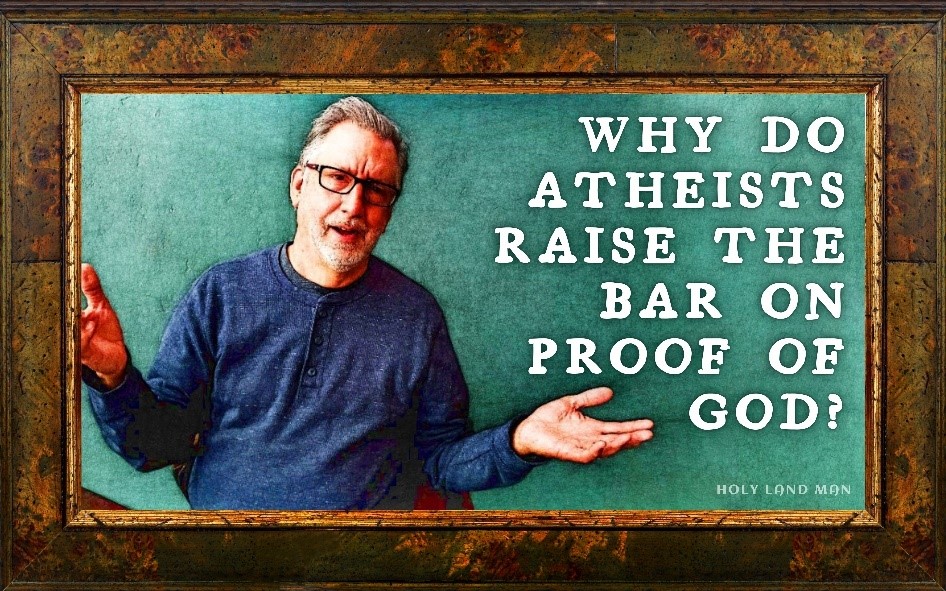To claim that “there is no evidence for the existence of GOD,” atheists raise the bar of what is considered proof, by placing strict acceptance requirements on any argument of the sort, and sometimes the bar is much higher than they require in other areas. It is of course possible to continually raise the bar for proof. It could be argued, for example, that if millions of people have seen GOD, then they are probably delusional, and that if there are works in the world with amazing design and complexity, they are works of blind nature.
In fact, there is almost no conceivable proof that cannot be refuted with the magic word “by chance!” (Sometimes it seems that “chance” is the GOD that atheists worship.) But anyone making such assumptions has not proved that there is no evidence for the existence of GOD but has simply made assumptions that refuse to accept this evidence.
In fact, this is almost the desired assumption: one can simply assume in advance, as an axiom, that GOD does not exist and then explain in creative ways any evidence for GOD’s existence. Such an approach may be coherent perhaps, but it would be ridiculous to claim in its wake that “there is no evidence for the existence of GOD,” just as someone who closes his eyes cannot seriously claim that “there is no evidence for the existence of the stars.”



